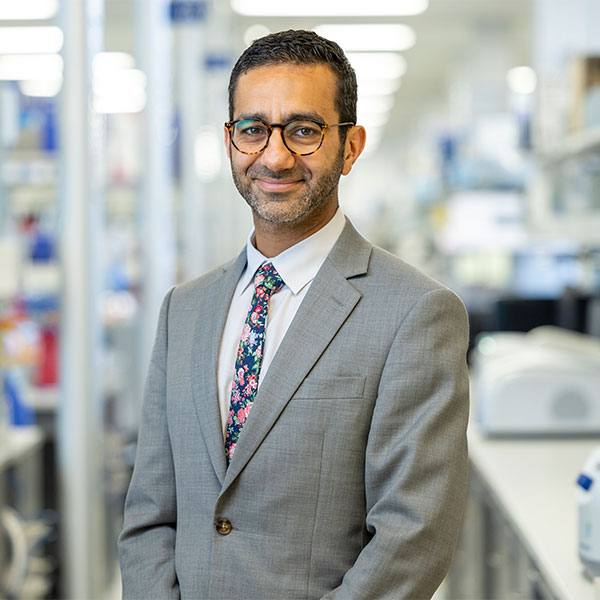-
Neurosciences
Sharing Mayo Clinic: How the right diagnosis and a new approach changed my life

Editor's note: This story was written by patient Lauren Quinn.
I've always been an active girl. Running cross-country, playing lacrosse and dribbling down the basketball court is where I shined. But in 2008, my life was turned upside down, and it would be 13 years before things would get better.
I vividly remember a family vacation when I started to feel exhausted, nauseous and weak. I was in fifth grade, and within a week the symptoms became increasingly severe. Eventually I was vomiting for more than 14 hours a day, missing school multiple times per week and unable to finish my assignments. I had become forgetful, my speech was impaired and my athletic career was sidelined.
What was happening to me?
Throughout middle school in Jacksonville, Florida, my mom took me from doctor to doctor and still didn't get an answer to what was going on with my body and how to fix it.
I would leave early from birthday parties to receive medical tests and lay in my friends' dark room during sleepovers. During a cross-country race, I remember my dad running the last mile with me for moral support. My body couldn't continue.
My friends did not understand what I was going through, and they stopped inviting me to activities. I felt hurt, defeated and confused, and certainly not normal.
After 18 doctors, I had a muscle biopsy in Atlanta, and I was diagnosed with mitochondrial disease. Mitochondrial disease results from failure of mitochondria, the specialized compartments in the body's cells responsible for creating energy, from functioning properly. This can lead to less energy, cell injury and cell death.
About mitochondrial disease
According to Elliot Dimberg, M.D., a Mayo Clinic neurologist, mitochondrial disease refers to a large group of disorders associated with defects in the energy-producing function of the cellular organelles called mitochondria. These defects are caused by abnormalities in the genetic code, either of the mitochondria or the nuclear material of the cell.
Mitochondrial disorders can affect any organ, although the brain, skeletal muscles and heart are particularly susceptible. Diagnosis or exclusion can be difficult in many cases as symptoms are common in general and nonspecific to mitochondrial disorders such as muscle pain or gastrointestinal problems.
Due to the difficulty in diagnosis, reliable estimates of how common mitochondrial disease is in the population are difficult to determine. Some estimates suggest that mitochondrial disease may be common, with up to 1 in 5,000 in adults affected.
With that diagnosis, you would think that was the end, right?
The most difficult part about having mitochondrial disease is it being a "hidden" disability. I tell everyone, "My personality does not match my illness," because I am a determined and outgoing person. Many people I encountered didn't understand what I was going though and thought my symptoms were for seeking attention. I felt defeated once again.
As I moved through high school and began taking approximately 20 supplements and vitamins each day, I still wasn't feeling like my old self. I would study for weeks and still be unable to recall anything. I would feel tired and still weak on occasion.
My school helped me rearrange my schedule, so I did not have to walk the length of campus to each class, space out tests and even allowed me to take exams at a campus closer to home so I did not lose energy commuting.
I was not going to let this disease define what I could do with my life.
All these experiences led me to want to give back to others. I wanted to use my experiences to help ill children and teenagers who were scared and confused. I volunteered and interned with programs with medical ties and those dedicated to children. My twin brother, who does not have the same health problems as me, created a mitochondrial disease awareness club, and my classmates took brochures to doctors in our community to offer information on the signs and symptoms in case they encountered patients like me.
I attended and graduated from an out-of-state university, but still something was not right. I was still feeling too sick to do many things. Leaders of a mitochondrial disease support group encouraged me to participate in a Mayo Clinic study, but what came next changed my life again.
I came to Mayo Clinic, and now I feel like I can conquer the world.
By early 2021, I had been living with a mitochondrial disease diagnosis for 13 years. That's when physicians at Mayo Clinic in Florida studied a saliva test I had taken at another organization years earlier. Ultimately, they discovered I had a mitochondrial deficiency that would open the door to a new treatment plan. I was referred to Adam Perlman, M.D., Integrative Medicine and Health, who offered a new strategy: supplements, diet and exercise regimens.
"By looking at our patients as individuals, we can formulate a plan that integrates all aspects of their care and well-being to find what works best for them," says Dr. Perlman. "Often, it’s not just about treating a disease, but helping people to take their lives back."
After several months, I feel like a changed person. I don't feel defeated or confused. I have a team of physicians supporting me so that I can succeed. While I'm not cured, I am improving, and I can start to live the life I've envisioned having for more than a decade, thanks to Mayo Clinic.







